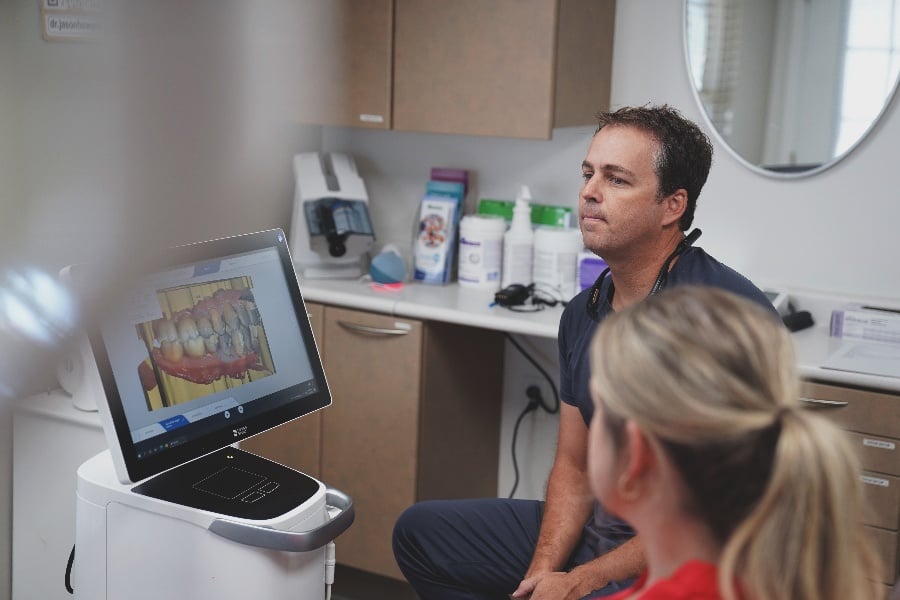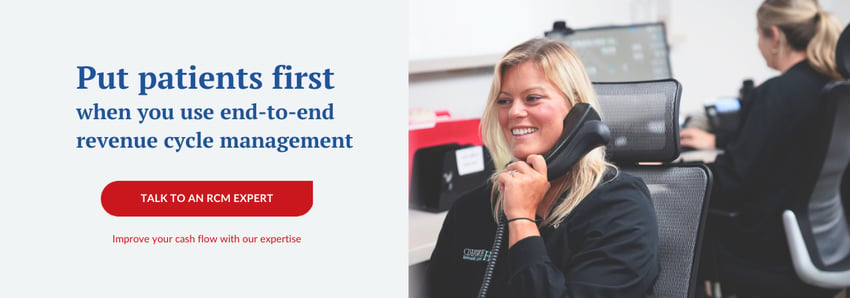3 ways dental credentialing issues can cost your practice


There are a few dental credentialing issues that dentists face that can be costly to their dental practice if they are not resolved or avoided. Dental credentialing might seem like a formality that doesn’t hold a lot of weight. It’s paperwork that seems to take months and months to process. But unresolved credentialing issues can halt your revenue cycle.
They can even lead to legal or reputation issues that will cost you even more.
Dental ClaimSupport is a trusted dental billing partner that offers credentialing services to dental teams. Through our years of experience, we’ve seen what happens when credentialing mistakes are made, and why it is so crucial that the application is completed correctly.
In this article, we will explain 3 ways credentialing issues can cost your practice. By understanding the financial weight of these issues, you will be able to take steps to avoid or prevent them. This way, your team can be proactive in their credentialing process and maintain continuous cash flow.
1. You’re relying on one less dental provider - production is lowered or halted
When you’re waiting on your credentialing application to be approved, that dentist cannot provide in-network insurance-covered services. Some PPO plans may send the actual insurance payment to the patients while other plans such as EPOs may send the payment to the patient instead of the practice.
Any patients seen while the dentist is not credentialed will be considered “out of network.”
And this can cause a halt in production! Relying on just one dentist (depending on the size of your practice/volume of patients) can be overwhelming. So, you might not be able to schedule as many patients in a day since you have one less dentist. You will have to carefully review each patient scheduled with the new provider to make sure they are not on an in-network type insurance plan.
The best way to avoid this in-limbo period? Make credentialing the FIRST priority when you bring on a new dentist, or when you start a new dental practice. The production of your practice hinges on whether or not your dentists are credentialed.
When it comes to opening a new practice, we ALWAYS recommend that this is the first thing you do, before anything because credentialing can take between 90-180 days, give or take some. And since it’s such a waiting game, you can submit your application, then spend time getting other parts of your dental practice ready.
If you have just hired a new dentist, and are waiting for their application to be approved, don’t let the administrative team start booking for two dentists without verifying the insurance plan type. Let your new associate dentist shadow you, learn your systems, or complete software training. Just make sure you complete your credentialing application ASAP so that your lull in production is less affected.
2. Inaccurate or incomplete applications will lead to longer wait times
When you submit your credentialing application and there are errors or missing information on it, it will take longer to get approved. Credentialing applications already take a lot of time to be approved, so make sure you submit accurate applications. Be prepared to submit the following additional items:
- W-9(s)
- CV
- Drug Enforcement Administration (DEA) Certificate.
- Controlled and Dangerous Substances (CDS) Certificate.
- State medical license(s)
- Diploma
- Various identification numbers (NPI, Medicare, Medicaid, etc.)
- Malpractice insurance policies that show a current date of coverage
- Ask the insurance carrier if they offer a quicker solution for credentialing in temporary emergency cases such as Locum Tenen for a doctor out on medical leave for a limited amount of time
- Ask the carrier If the provider was credentialed in the past with them, if they may have a way to fast-track the credential request at the new practice.
This can especially be costly if you are a dentist trying to become re-credentialed. Every 2-3 years, dentists have to submit another application to be credentialed. Starting this process early can give you plenty of time to accurately complete the application.
Related: 3 common dental re-credentialing questions answered
The good news is that being re-credentialed at your practice takes far less time than a new application (30-90 days). But you should still stay up to date with licensing and board certification to ensure effective dental credentialing. So make sure you or whoever is completing your credentialing application is up to date on the information needed for approval.
3. Submitting claims with an incorrect treating doctor
If the provider is out of network, some practices will list the treating doctor as a different provider who is credentialed already as an in-network as an in-network provider.
This method of billing is considered fraudulent as the treating dentist. If the insurance company says you may temporarily use another provider that differs from the actual provider, we recommend you speak with their supervisor, and record their name, title, reference number of the call, and details of the conversation.
We recommend that you follow the actual guidelines from the American Dental Association.
Fraudulent billing due to credentialing issues may also harm the practice's reputation. We know credentialing applications take a long time to process, but putting a different dentist’s name on an insurance claim while you wait for your credentialing application to be complete can lead to insurance fraud investigations from the state dental board, or insurance company.
If your practice is ever audited, you may be legally prosecuted for insurance fraud, be hit with a hefty fine, and end up having to pay back all that money that was paid to your practice illegally. If this information got out to anyone, it could spread quickly, and your goodwill in the practice may suffer.
Related: 3 illegal dental billing practices that can hurt your dentistry
This also means you need to keep up with the date a dentist needs to be re-credentialed. Commonly, dentists might forget the deadline of when they need to be re-credentialed. You may think you can continue being an in-network provider, no big deal. But once you submit an insurance claim with your name on it and you aren’t credentialed, an insurance company might deny your insurance claim, process out of network, or send the payment directly to the patient.
And if the patient is affected by an insurance claim, and starts looking into why the claim was denied, they might be notified of your out of network status due to credentialing delays. This opens opportunities for patient frustration, billing complaints, and bad Google reviews, and creates a huge mess for your dental practice.
Pro tip: Be proactive and Inform the carriers (in or out of network) if you have a new provider, ask what they may need besides the W-9 to avoid payment delays.
Ready to be properly credentialed at your dental practice?
Proper credentialing can lead to clean insurance claims and good business practices. While credentialing problems can be costly, they can also be avoided through proper planning. You now know just how costly credentialing issues can be.
Dental ClaimSupport is a dental billing friend to teams looking for tools such as credentialing services. Our credentialing department works hard to make sure your applications are accurate, complete, and submitted in a timely manner.
To learn more about how you can become credentialed with an insurance company and avoid costly mistakes, visit our credentialing services webpage.

Related Posts
Dental revenue resources from Dental Claim Support
